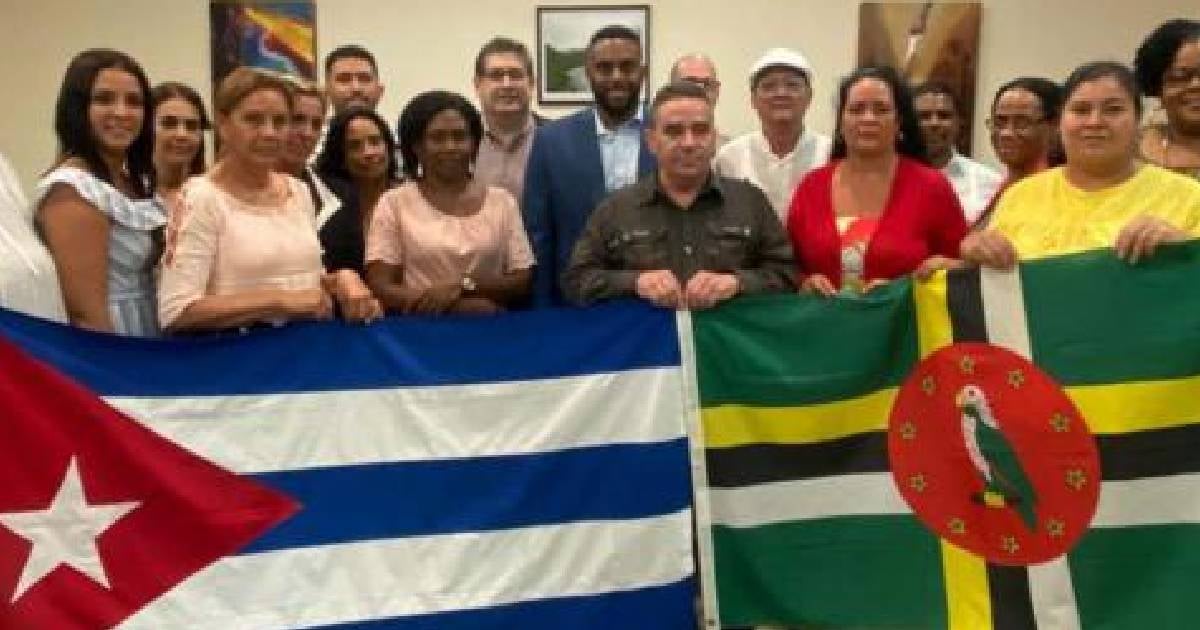Amid ongoing criticisms regarding the exportation of healthcare personnel to other countries, the Cuban regime has sent another group of doctors to the Caribbean island of Dominica. Without specifying the number, the official state media agency Prensa Latina celebrated that this new team will join the existing brigade already working in Dominica.
The healthcare workers were received by Dominica's Minister of Health, Cassanni Laville. The group includes specialists in intensive care, general medicine, neonatology, obstetrics, radiography, laboratory work, biomedical engineering, and nursing.
According to Prensa Latina, Laville highlighted the more than 20 years of Cuban cooperation in the health sector, acknowledging the solidarity of these professionals and their commitment to assisting other nations. Meanwhile, Miguel Fraga, the Cuban ambassador to Dominica, mentioned that the dispatch of Cuban doctors to Dominica began in the 1990s, and since then, around 130 young people have graduated from Cuban universities.
In 2020, a group of Cuban doctors was sent to Dominica as part of the international Henry Reeve Brigade to support the fight against COVID-19. These healthcare professionals have been crucial during crises, but some locals point out that the language barrier has complicated medical care, as seen in other English-speaking Caribbean islands.
Language Barrier Issues
Recently, it was revealed that Cuban doctors in Saint Vincent and the Grenadines are facing harsh criticism on social media for not speaking English, which affects effective communication between healthcare professionals and their patients, creating a significant problem in the country's healthcare system.
The language barrier between residents and foreign doctors, primarily the Cubans, has generated numerous complaints from patients and local healthcare professionals, who claim that the lack of understanding jeopardizes patient safety and well-being.
The Cuban government, which withholds a significant portion of these professionals' salaries, has been criticized for not ensuring their safety or providing fair working conditions. Despite this, the island's authorities continue to sign contracts without addressing key details such as the language proficiency of the doctors in the countries where they will work.
For instance, last July, the Mexican government announced that it would increase the number of Cuban doctors working in the country to 3,800, despite the criticisms surrounding the agreement signed with Cuba from opponents of Andrés Manuel López Obrador's (AMLO) administration.
Questions and Answers About Cuban Doctors in Dominica
Here are some frequently asked questions and answers regarding the deployment of Cuban doctors to Dominica and the associated challenges.
Why is the Cuban government sending doctors to Dominica?
The Cuban government sends doctors to Dominica as part of their international cooperation efforts in the healthcare sector, continuing a relationship that has lasted over 20 years.
What challenges do Cuban doctors face in English-speaking Caribbean islands?
One of the main challenges is the language barrier, as many Cuban doctors do not speak English fluently, which complicates effective communication with patients and local healthcare staff.
How does the Cuban government benefit from sending doctors abroad?
The Cuban government benefits financially by retaining a significant portion of the salaries earned by these medical professionals abroad, which helps to fund their national programs and other initiatives.
What has been the response from local populations about the Cuban doctors?
While many appreciate the medical support, there have been complaints about the language barrier and concerns about the quality of care due to communication issues.
